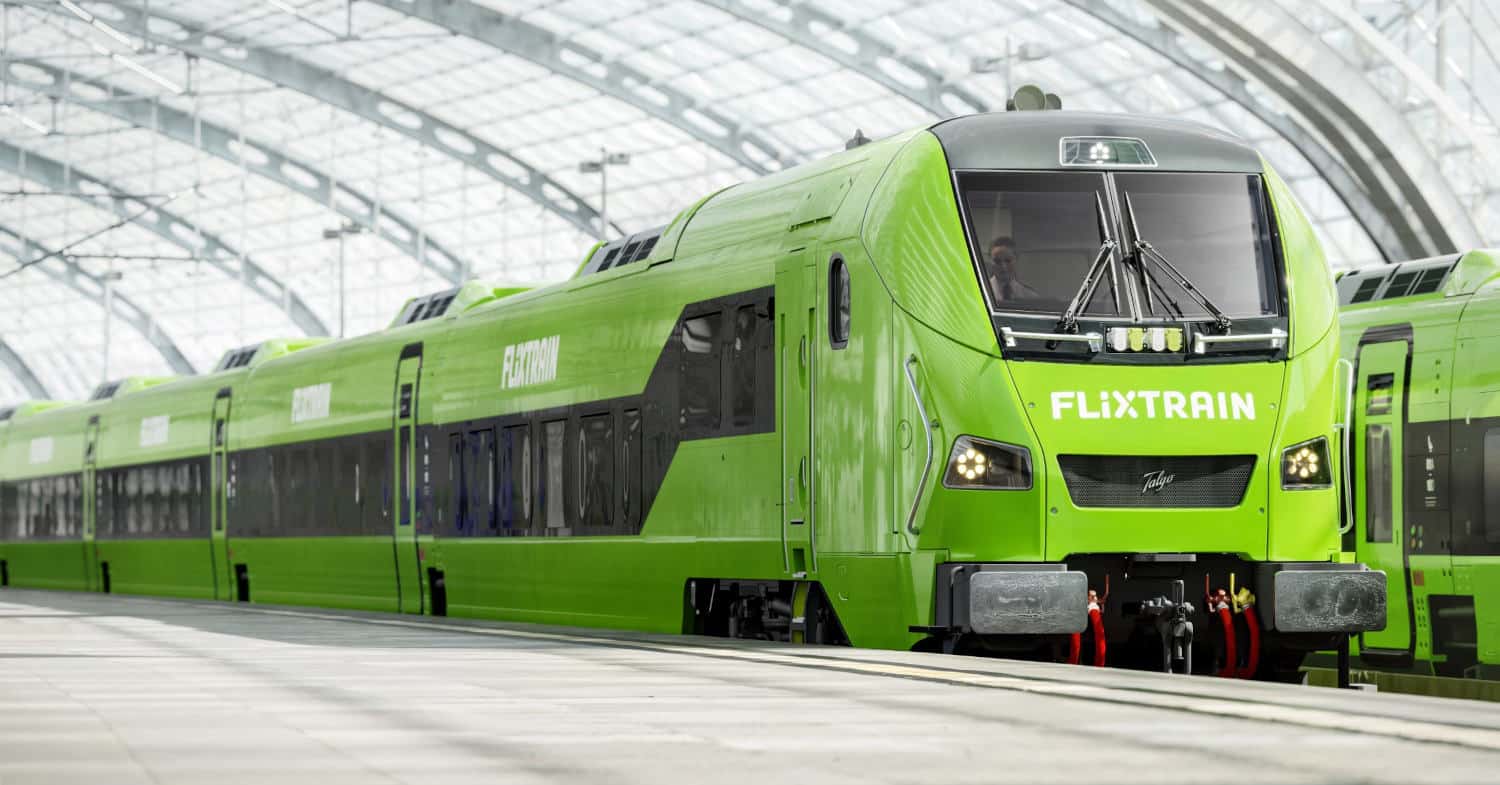German low-cost operator FlixTrain has announced the acquisition of 65 new high-speed trains from Talgo, in a framework contract valued at up to 2.4 billion euros. The Spanish manufacturer will also be in charge of maintenance.
The contract includes a firm order for 30 trains worth over 1 billion euros.
The new trains will belong to the Talgo 230 platform. They will be similar to the ICE-L trains purchased by Deutsche Bahn, designed to run at a maximum speed of 230 km/h, and operate on cross-border routes between Germany, Austria, the Netherlands, Denmark, and Sweden.
Trenvista Premium te lleva directo, sin anuncios que hagan descarrilar tu lectura ni tu paciencia.
Únete por sólo 35€ al año, disfruta de contenidos exclusivos, más ventajas y cancela cuando quieras.
★ Empieza ahora
They will be push-pull trains. But unlike the public operator’s trains, FlixTrain’s Talgo trains will use Siemens Vectron locomotives, which will be leased under a separate contract.
Each train will consist of an end car with a driver’s cab, several intermediate cars and one car for persons with reduced mobility.

Although the operator talks about high-capacity cars, it is not confirmed whether it will use a wide-body model like the Avril, which allows a 3+2 seating arrangement.
FlixTrain’s Talgo 230 trains will offer full accessibility
Among the main new features is universal accessibility, which is still missing on most German long-distance trains and will be expanded thanks to ICE-L.
In addition, the trains will be equipped with advanced passenger information systems, air conditioning, state-of-the-art wifi and other services aimed at maximising passenger comfort and experience.
FlixTrain’s decision comes in response to the growing demand for fast and affordable rail travel in Europe. The company plans to use these trains to drive growth in Germany and other European markets, tapping into the potential of a sector that could grow by 45% in Germany by 2030 and record a market value of €27 billion across Europe.
André Schwämmlein, CEO and co-founder of Flix, stresses that the fleet expansion will “usher in a new era of rail travel in Germany and Europe.” The aim is to attract more people to sustainable transport and increase both market share and the rail market itself.
